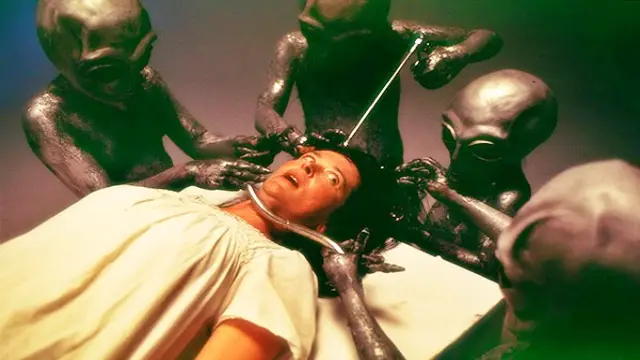So two magicians walk into a bar, a fashionable new joint in Williamsburg with exposed brick walls and artfully-painted pipes and ductwork along the ceiling. They take a seat at a table near the back. The room is dimly but artfully lit, offering up a faintly conspiratorial atmosphere for the upwardly mobile patrons enjoying the early Spring afternoon.
The first magician orders the latest, hippest craft beer– a winter wheat number with a ginger infusion– and the other orders a black coffee. The jukebox is especially loud and obnoxious in this joint, but at least the music is good; a carefully curated selection of vintage 60s rock and 70s soul.
The magicians are old friends, but have gone in very different directions in recent years.
“So I wanted to touch base with you and see how your work has been progressing,” the first says, carefully sipping from his wheat beer, carefully dabbing at the foam on hip lips with a cloth napkin. “I’ve been making some major strides with my own practices.”
The other magician eyes his companion, careful not to betray a hint of judgment. “Really,” he says neutrally, “what kind of strides are those?”
“I’m working with some people I met on Facebook. They’re working in a number of different modalities and doing some exciting things,” the first magician replies cheerily.
“What kind of modalities are those?,” the other magician says, sipping at his coffee, trying to disguise his growing skepticism. It is very good coffee and he’s grateful to have something to focus his attention on.
“Well, the dominant praxis is based in the Obeah tradition, but we’re working in a number of different indigenous modalities and finding points of congruence among them,” the first magician says, drumming his fingers on the table, somewhat arthymically, to an early Funkadelic number. “I’m considering becoming a priest in a Hoodoo coven operating out of Portland, which also incorporates Alexandrian and Chaos magic, as well as some Dianic and Tantric practices. I may have to leave the Golden Dawn order I’m involved with, though. It’s considered an expression of vestigial imperialism in certain circles. It is, when you think about it. All of its rituals are based in Medieval European monarchial rites. But the Order is falling apart anyway.”
“I see,” the other answers, stirring his coffee, even though he takes it black. Staring hard at his cup, he asks his friend, “And you don’t find that problematic at all?” A ‘hoodoo coven.’ Jesus. And how do you join a coven in Portland when you live in Park Slope?
“What do you mean?,” his friend replies, with more than a slight hint of indignation.
“Can traditions be divorced from the cultures that birthed them? Can you just take bits and pieces at will like that? Isn’t this just consumerism run amok?”
“What are you talking about?,” the first magician says. “That’s the way magic has always worked. Religion, culture, everything.”
“What I’m trying to say is that you grew up eating Cheerios and watching He-Man and Transformers in the suburbs, not on a Haitian sugar plantation,” the second magician replies, “I know where your parents live, their house would have been considered a lavish castle in the Antebellum South. Don’t you think you’re engaging in…. cultural appropriation by assuming that Hoodoo or Obeah is yours for the taking? What dues have you paid to justify reinventing yourself as a Hoodoo man?”
“Listen, as a victim of late-stage capitalism I– we— are all paying some heavy dues, especially with the current occupant of the White House,” his tablemate replies, despite the fact that he is pulling in a low six-figure salary as a systems analyst. “We have been robbed of our own ancient traditions. The patriarchal Abrahamic religions wiped out the indigenous faith of my Celtic forebears. I consider it an act of resistance to submit myself to a system that was birthed by the marginalized and the oppressed.”
He took another sip of his wheat beer and practiced his hard look, stung by the insinuation that he’d stoop to something as offensive as culto-spiritual appropriation. Theft, in other words. No better than a 18th Century slave trader.
The second magician decides to let it pass.“What kind of results are you seeing,” he asks instead, trying to re-steer the dialogue.
“Results?,” his friend replies.
“Yes, what kind of results are you getting from the work? Are you keeping a journal?”
“Sure. But this isn’t like rubbing a magic lamp and asking a djinn for three wishes or something. This is about exploration, self-discovery, self-actualization. We’re not doing this to make withdrawals from the spirit-world ATM.”
“OK,” the second magician says. Since when wasn’t magic about results? New Age therapeutic happytalk was everywhere now.
A waiter approaches to ask if they want to order anything from the kitchen. The first magician orders zucchini sticks, his companion orders buffalo wings. The arrival was well-timed since it broke the tension building between the two friends.
“So what kind of blood sacrifices are you partaking in?,” the second magician inquires and immediately regrets the slip, which immediately kickstarts the aggro again.
“Is that some kind of joke?”, the first magician replies, angrily. “We take it as a vow to do no harm to any sentient creature. I’m a practicing vegan now. Most of us are. I’ve had a lot of requests for curses, y’know, binding spells, even love spells. But we don’t work that way.”
“These traditions you’re working with take animal sacrifice for granted. They have for a very long time. It’s the currency of the spirit world. Hell, even Greek housewives brought sacrificial piglets and lambs to Mystery cults as the price of admission. At one time or other, every religion in the known world practiced blood sacrifice. It was the basis of temple worship in Judaism, all over the Mediterranean. Those Celtic forebears of yours didn’t blink at human sacrifice. It was the foundation of their belief system. Same goes with the Norse. Same goes for the Phoenicians, the Canaanites, Mesoamericans. I mean, why should these spirits or the gods grant you favors if you aren’t willing to give them something in return?”
“You sound like you’re on a dangerous path, my friend,” the first magician says, and begins scanning the room for a familiar face so he could escape this conversation.
“Me? No. I’m not the one claiming to rewrite ancient traditions to suit my needs. Animal sacrifice is not an opt-out in those traditions, it’s part of the code. Always has been. Civil rights battles have been fought in court over preserving these practices. But here’s the deal; if you’re not willing to make some kind of meaningful sacrifice to the these spirits, who’ve been expecting them for thousands of years, then at some point sacrifices will be made for you. And I guarantee that you won’t like that.”
An uncomfortable silence takes hold. Both magicians stare hard at their cups.
“I don’t know where all this is coming from,” the first magician says, still studying the foam in his beer. “I was really looking forward to a meeting of the minds with you today.”
“It’s coming from concern for your safety and well-being,” his friend replies, “Folk magic is not a hobby, it’s not the latest boho fad. You and your friends are dabbling in systems that can’t just be rewritten to suit the needs of postindustrial urban professionals. It’s not a steam table at a buffet restaurant. These are not systems you can curate. You’re dealing with the premodern, not the postmodern.”
“What does that even mean?”, the first magician asks.
“It means that things have rules for a reason. And these are systems that based in deal-making with spirits who don’t really give a shit whether you live or die. Just whether or not you can be useful to them.”
“You’re being seriously overly dramatic,” the first magician says, “I know people who’ve been working with these systems for years and haven’t experienced anything like that.”
“Haven’t they? Maybe they just haven’t made the connection. The spirits don’t usually send you emails when they decide to fuck up your shit. Well, if you know their language you’ll most certainly get the message. But first you need to let go of the illusion that the Universe is constantly conspiring on your behalf.”
The first magician scoffs and begins scanning the room again.
“Listen, if you want to pursue all this, I can’t stop you,” the second magician says, “All I can say is that you can’t separate blood and sacrifice from religions that have been working around blood and sacrifice for millennia. You can certainly try but at some point, blood and sacrifice will come into your life whether you want it to or not. You might be a vegan but these spirits are most certainly carnivores.”
“What happened to you, man?,” the first magician asks, testily, “You sound like some friggin’ church lady.”
“No, I sound like a magician.”




















